John Addenbrooke, founder of the famous Cambridge hospital, was a fellow of St Catharine’s College around the start of the 18th century. One of the treasures in the college’s collection is his medicine cabinet, which has 27 drawers of assorted shapes and sizes.
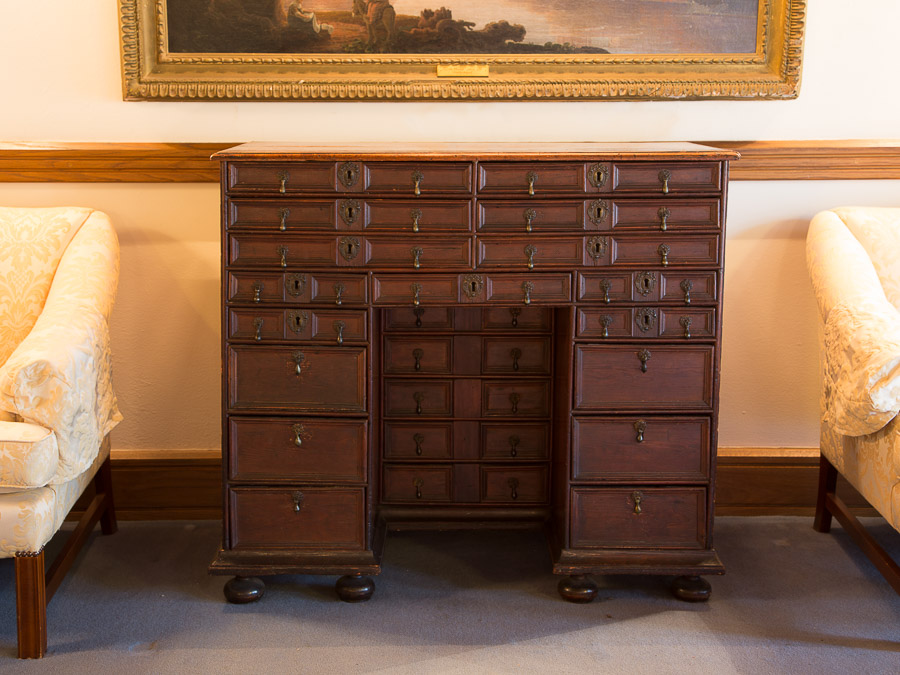
If you open these, in the rather gloomy lighting of the room, you see some dusty items under dusty glass, and it’s hard to make out anything of much interest.
However, the college now has some funding to get the contents properly catalogued, and, since I’ve been doing a bit more professional photography recently, they hired me to take some photos of the interior. I set up a lighting rig, and the librarian and I carefully removed the glass panels covering most of the drawers. Under proper lighting, the contents came alive.
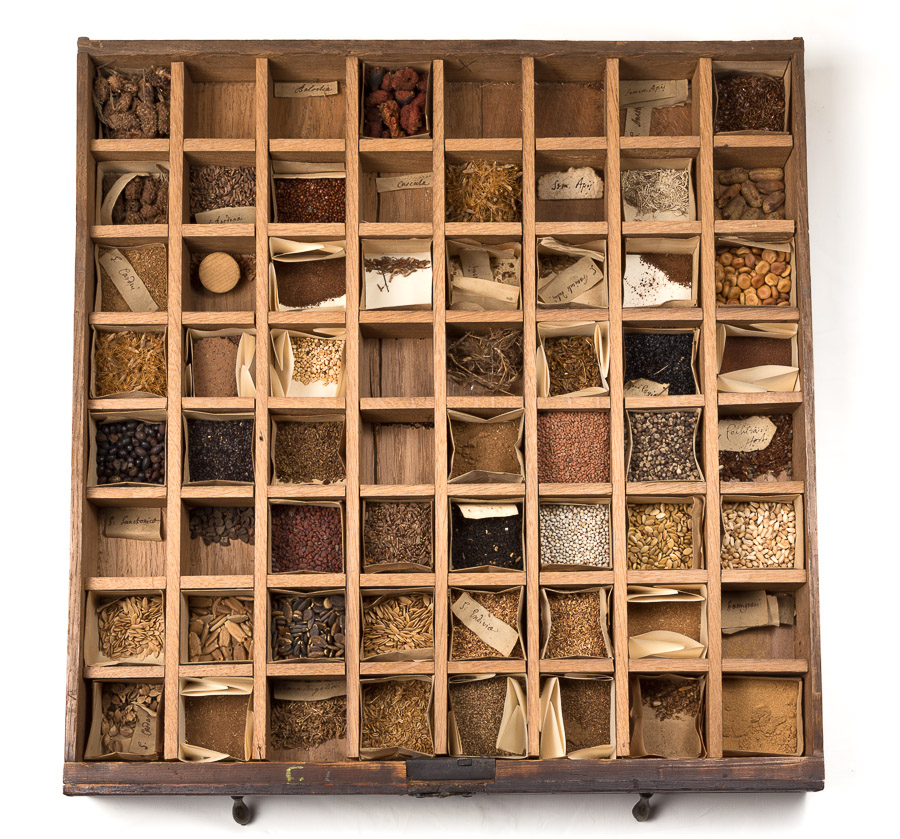
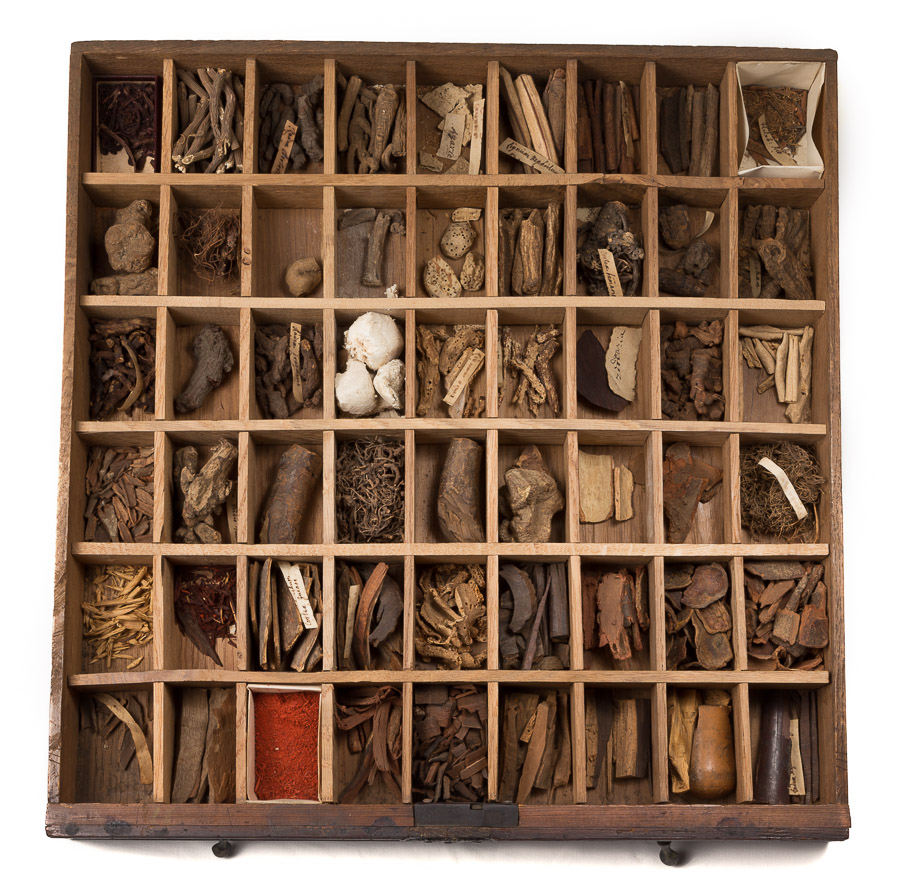
There are seeds, powders, bones, fossils, stone axe-heads; even a wooden clog in one of them!
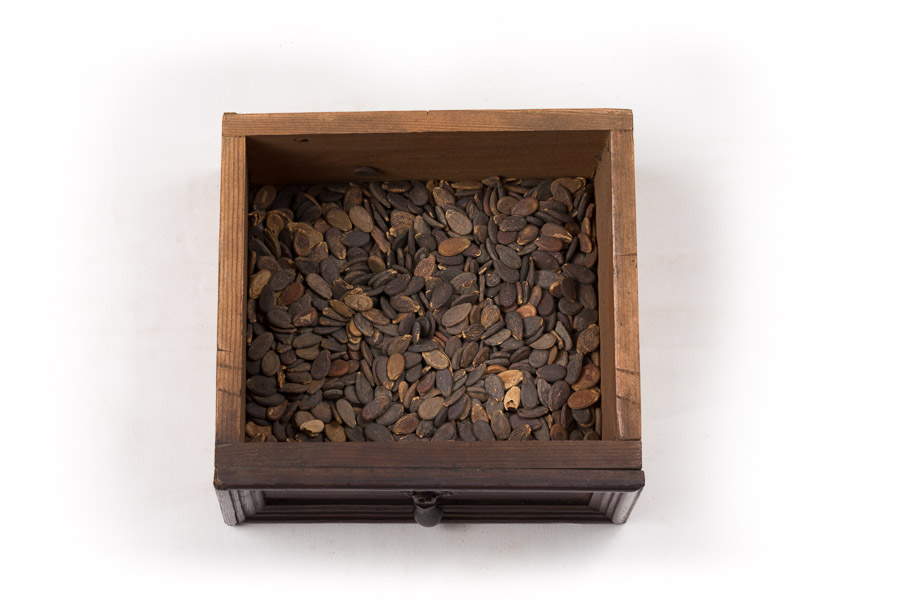
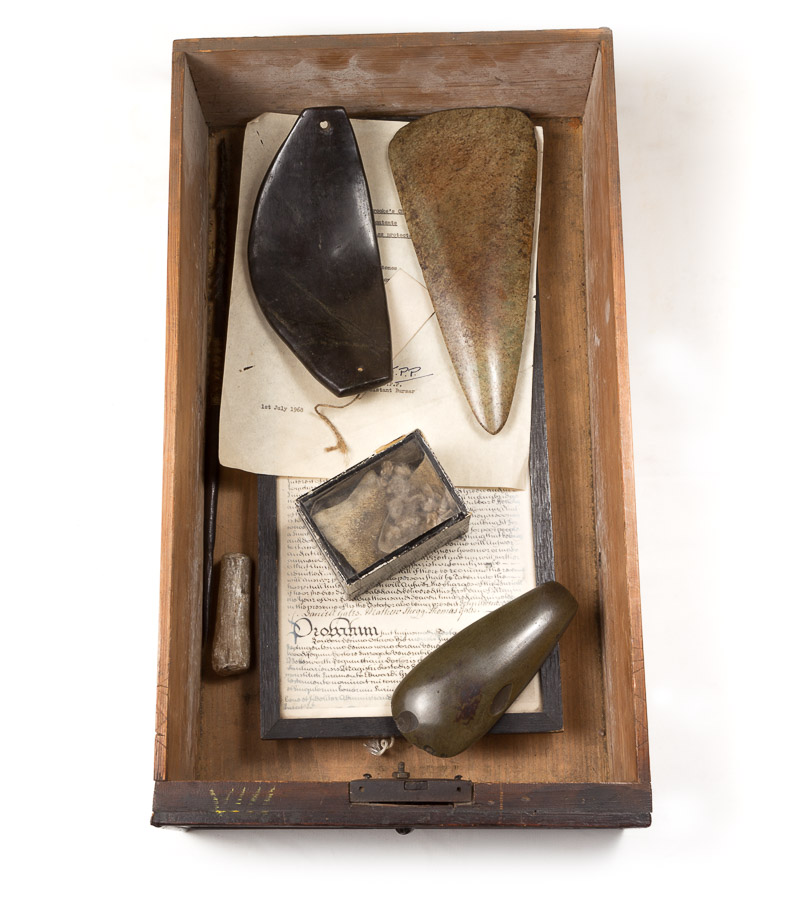
The full details will appear on the college website once the experts have done their job identifying the contents. My thanks to the college for permission to publish a few images here.

I can’t wait to find out what some of these are, and where they came from!

Anyone recognise anything?
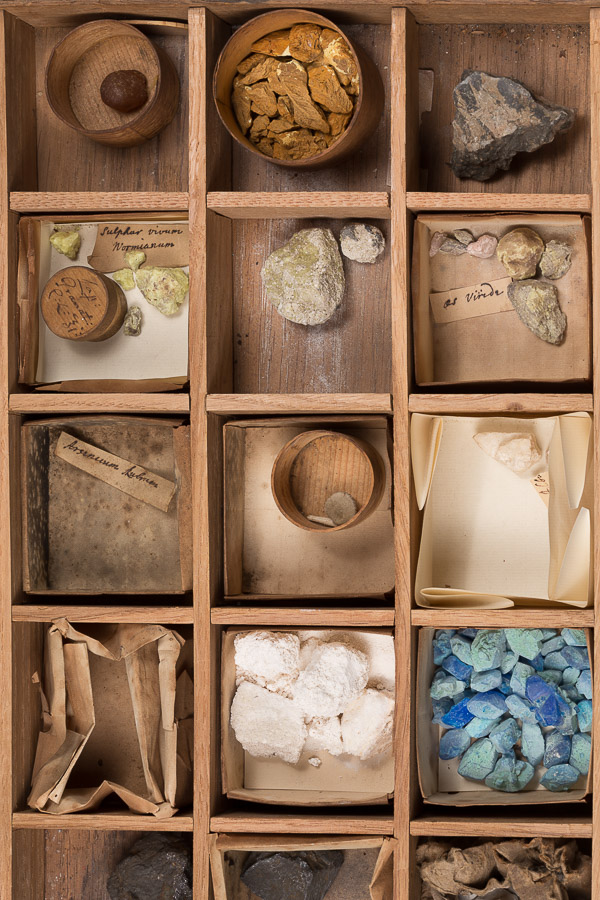
One thing I realised, when I got home, is that I needed to wash my hands thoroughly, since, for all I knew, I’d been spending the afternoon dusting my fingers in 300-year-old arsenic, or worse!











Recent Comments